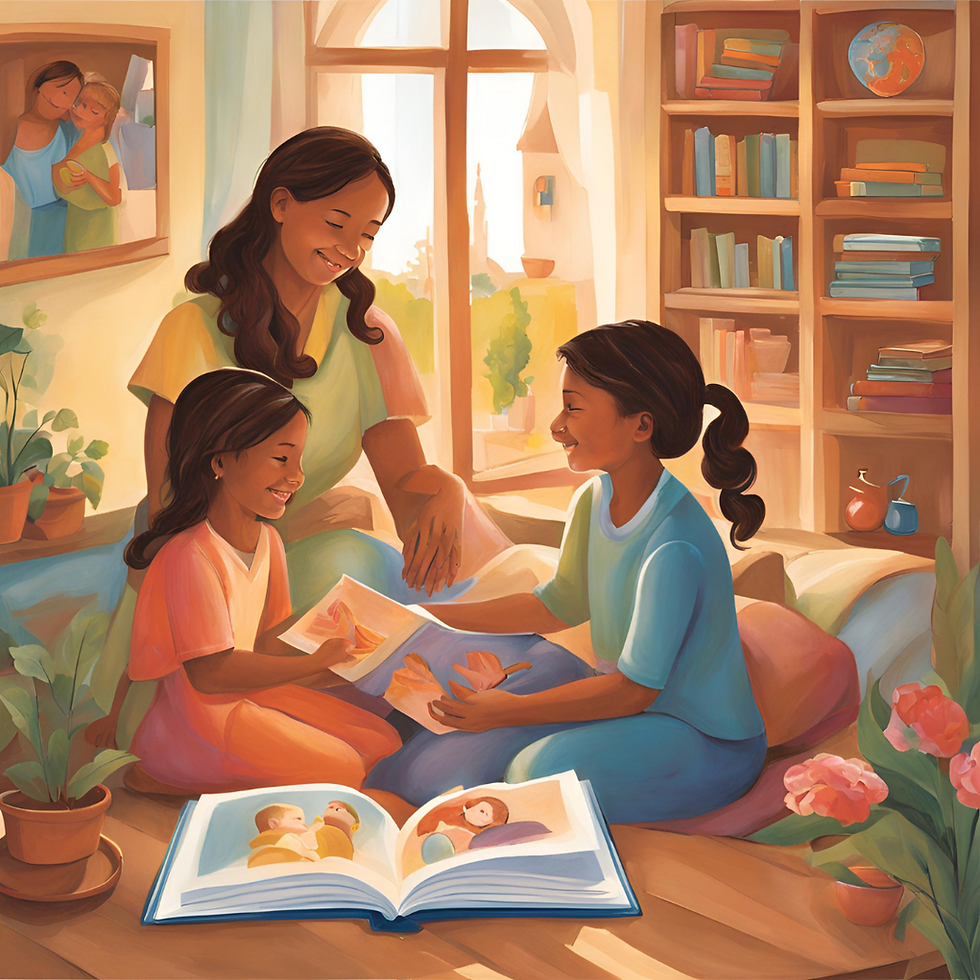Top 9 Spanish Words for Discussing Justice and Equality with Kids
- JohnMark Leonardo
- Jan 13, 2025
- 3 min read

Introducing children to social justice and equality through language is a powerful way to foster empathy, understanding, and a sense of responsibility. Using Spanish vocabulary, along with simple explanations, can help deepen their understanding of these important concepts while also enriching their language skills. Here are the top 9 Spanish words for discussing justice and equality with children, along with their meanings and how to incorporate them into meaningful discussions about social issues.
1. Justicia (Justice)
Meaning: Justicia refers to the concept of fairness and moral righteousness. It’s a key word when discussing how we treat people equitably and ensure that everyone has what they need to thrive. Use in discussion: "La justicia es cuando tratamos a todos por igual y de manera justa." (Justice is when we treat everyone equally and fairly.)
2. Igualdad (Equality)
Meaning: Igualdad means equality—everyone having the same rights and opportunities. This concept is central to social movements and is foundational in discussions about human rights. Use in discussion: "Todos debemos tener igualdad de oportunidades, sin importar nuestro origen." (We should all have equality of opportunities, no matter where we come from.)
3. Respeto (Respect)
Meaning: Respeto refers to showing consideration and regard for others, a vital part of treating people with dignity and fairness. Use in discussion: "El respeto es la base para que todos podamos vivir juntos en armonía." (Respect is the foundation for living together in harmony.)
4. Diversidad (Diversity)
Meaning: Diversidad highlights the presence of differences, whether in race, culture, beliefs, or abilities. Discussing diversity helps children understand the beauty of different backgrounds and perspectives. Use in discussion: "La diversidad nos hace más fuertes porque aprendemos unos de otros." (Diversity makes us stronger because we learn from one another.)
5. Derechos (Rights)
Meaning: Derechos refers to the legal or moral entitlements that individuals have simply by being human. Discussing derechos helps children understand what is owed to them and others in a society. Use in discussion: "Todos tenemos derechos, como el derecho a ser tratados con respeto." (We all have rights, like the right to be treated with respect.)
6. Solidaridad (Solidarity)
Meaning: Solidaridad represents the idea of standing together and supporting one another, especially in difficult times. It reflects a commitment to collective well-being. Use in discussion: "La solidaridad nos ayuda a apoyarnos mutuamente, especialmente cuando alguien está pasando por un momento difícil." (Solidarity helps us support each other, especially when someone is going through a tough time.)
7. Libertad (Freedom)
Meaning: Libertad refers to the ability to act, speak, or think without hindrance or restraint, a core concept in discussions about human rights and equality. Use in discussion: "La libertad es uno de los derechos más importantes que todos debemos defender." (Freedom is one of the most important rights we must all defend.)
8. Compasión (Compassion)
Meaning: Compasión is the feeling of empathy for others, especially those who are suffering, and a desire to help them. It’s a key word in teaching children how to act with kindness and empathy toward others. Use in discussion: "La compasión nos ayuda a entender el dolor de los demás y a ayudarlos." (Compassion helps us understand the pain of others and to help them.)
9. Tolerancia (Tolerance)
Meaning: Tolerancia refers to the ability to accept or respect differences in others, whether in terms of opinion, belief, or background. Use in discussion: "La tolerancia nos enseña a vivir en paz con personas que son diferentes a nosotros." (Tolerance teaches us to live in peace with people who are different from us.)
Bringing These Words to Life
To help your child learn these important Spanish words and how they relate to justice and equality, here are a few activities you can try:
Storytelling: Read books or watch videos that feature characters advocating for justice and equality. Discuss the vocabulary words within the context of the story.
Role-Playing: Create role-play scenarios where children can practice using these words in situations like helping a friend, resolving a conflict, or standing up for what's right.
Art and Craft Projects: Create posters or drawings with the Spanish words and their meanings. Encourage children to make their own artwork about justice, respect, or equality.
Discussions: Use everyday situations to discuss these words. For example, when you’re talking about a fairness issue, ask, "¿Cómo podemos ser justos en esta situación?" (How can we be fair in this situation?)
By integrating these words into your child's daily life, you help them understand the important concepts of justice and equality, fostering a sense of responsibility to treat everyone with fairness, compassion, and respect.
These Spanish words not only enrich your child's language skills but also open the door to deeper conversations about social issues, empathy, and the importance of creating a just and inclusive world.




Comments